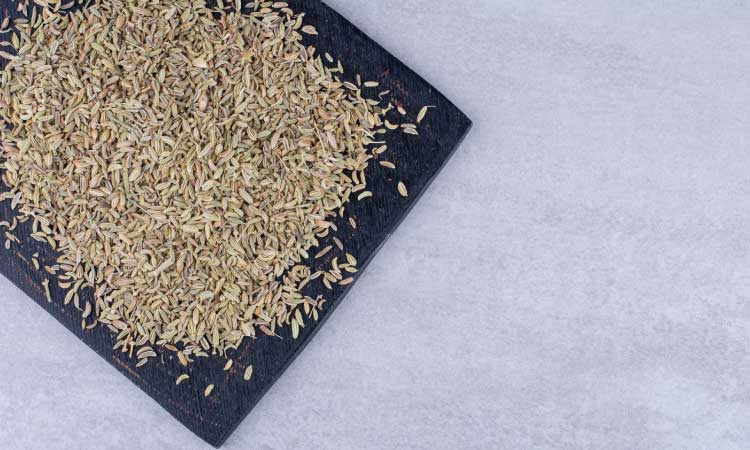Urinary Tract Infections (UTIs) can be a painful and bothersome condition, that affects millions of people worldwide. While medical treatment is often necessary, Indian home remedies have been used for generations to alleviate discomfort and aid in the healing process. These remedies are derived from traditional knowledge and can offer relief from UTI symptoms.
In this article, we will explore 15 of the best and most effective Indian home remedies for UTIs. From herbal teas to simple dietary changes and soothing baths, these remedies have stood the test of time in providing relief from UTIs.
What Causes UTI?
Understanding the causes of urinary tract infections (UTIs) is crucial in preventing and managing this common condition. UTIs occur when bacteria enter the urinary tract, leading to infection and inflammation. Several factors can contribute to the development of UTIs.
1. Bacterial invasion
The primary cause of UTIs is the invasion of bacteria into the urinary tract. The urinary system’s purpose is to help the body get rid of waste and extra fluid. It consists of the bladder, which stores urine, the kidneys, which filter blood and produce urine, the ureters, which carry urine to the bladder from the kidneys, and the urethra, which excretes urine from the bladder.
According to our panel gynaecologist Dr Ankita Patel Tayal, gastrointestinal bacteria, like Escherichia coli (E. coli), which are typically found in the intestines, are the main cause of UTIs. When these bacteria pass through the urethra, they have the potential to thrive and infect the urinary tract. The shorter length of the female urethra compared to the male urethra makes women more susceptible to UTIs, as the bacteria have a shorter distance to travel to reach the bladder.
2. Anatomical factors
Certain anatomical factors can also increase susceptibility to UTIs. For instance, the urethra of women is shorter than that of men, making it easier for bacteria to enter the bladder of women. Additionally, sexual activity can introduce bacteria into the urinary tract.
3. Medical condition
Medical conditions that impair normal urinary function or weaken the immune system can also contribute to UTI development. Diabetes, kidney stones, urinary catheterization, and weakened immune systems due to illnesses or medications are all risk factors for developing a UTI.
Related Reading: 9 Common Infections During Pregnancy You Should Be Aware Of
Calculate Due Date With LMP
4. Inadequate fluid intake
Inadequate fluid intake can concentrate urine and reduce its ability to flush out bacteria effectively. This increases the likelihood of bacterial growth in the urinary tract.
5. Other risk factors
Several factors can increase the risk of developing a UTI:
- Sexual activity: Sexual intercourse has the potential to contaminate the urinary system with bacteria
- Menopause: Decreased estrogen levels can lead to changes in the urinary tract lining, making it more vulnerable to infection
- Urinary retention: Incomplete emptying of the bladder can allow bacteria to multiply
- Urinary catheterization: The use of urinary catheters can introduce bacteria into the urinary tract
- Weakened immune system: Conditions that weaken the immune system, such as diabetes or HIV, can increase the risk of infections
- Obstruction: In addition to kidney stones or an enlarged prostate, any obstruction in the urinary tract can interfere with urine flow and create an environment in which bacteria can grow
- Feminine products: The use of some feminine products, such as powders or douches, can disturb the normal bacterial balance in the urethra and vagina, which can increase the risk of UTI
Understanding these causes allows individuals to take proactive measures to prevent UTIs. Maintaining good hygiene practices, staying hydrated, urinating frequently after sexual activity, and addressing underlying medical conditions are all essential steps in reducing the risk of developing a UTI.
How Do You Know You Have UTI

Are you experiencing discomfort or pain while urinating? Are you constantly feeling the need to urinate even when your bladder is empty? These could be signs of a urinary tract infection (UTI). UTIs are common bacterial infections that affect the urinary system and can cause a range of uncomfortable symptoms.
Recognizing the symptoms of a urinary tract infection (UTI) is important for early diagnosis and prompt treatment. UTIs can vary in severity, and not everyone will experience all of the symptoms. If you suspect you have a UTI, it’s crucial to consult a healthcare professional for proper evaluation and treatment.
Here are 10 common signs and symptoms of a UTI:
- Frequent Urination: One of the hallmark signs of a UTI is an increased frequency of urination. Individuals may find themselves needing to use the restroom more often than usual, even if they produce only small amounts of urine
- Pain or Burning Sensation: A sharp, stinging pain or burning sensation during urination is a telltale symptom of a UTI. This discomfort is caused by inflammation and irritation of the urinary tract lining
- Cloudy or Bloody Urine: UTIs can cause changes in the appearance of urine. Cloudy or discolored urine, often tinged with pink or red from blood, may be indicative of an infection
- Strong Odor: Foul-smelling urine that is notably stronger in odor than usual can be a sign of a UTI. The presence of bacteria in the urinary tract contributes to the change in smell
- Lower Abdominal Pain: Many individuals with UTIs experience mild to moderate lower abdominal pain or discomfort. This pain could last for a while and is frequently accompanied by other symptoms
- Back or Side Pain: UTIs that have progressed to the kidneys can cause pain in the back or sides. Kidney infections are more serious and may lead to more intense and localized pain.
- Fatigue and Weakness: The body’s immune response to an infection can lead to feelings of fatigue, weakness, or malaise
- Fever and Chills: A fever, especially when accompanied by chills, can signal a more severe UTI that has reached the kidneys. Kidney infections can lead to high fever and shaking chills.
- Discomfort in Pelvic Region: Some individuals may experience pressure or discomfort in the pelvic area, often described as a sense of fullness
- Painful Intercourse: For some women, a UTI can cause pain or discomfort during sexual intercourse
Dr Ankita Patel Tayal, MD obs & gynae, emphasises that it is important to remember that while these signs frequently point to UTIs, they can also be brought on by other health issues like STIs, bladder inflammation, or kidney stones. Therefore, it’s crucial to seek professional medical advice for an accurate diagnosis.
It’s important not to ignore the signs of a possible UTI. Remember that early detection and prompt intervention can help alleviate symptoms and prevent further complications associated with UTIs.
If you suspect you have a UTI, make an appointment with a healthcare provider. Diagnosing a UTI typically involves a medical professional collecting a urine sample for analysis. This helps identify the presence of bacteria or white blood cells in the urine.
15 Best And Effective Indian Home Remedies For UTI
If you’re looking for natural and effective ways to alleviate the discomfort of urinary tract infections (UTIs), you’ve come to the right place. In this section, we will explore the 15 best Indian home remedies that have been trusted for generations to combat UTIs.
These home remedies for urine infections in females are not only easily accessible but also provide relief without the need for harsh medications or antibiotics. Whether you’re seeking immediate relief or looking for preventive measures, incorporating these tried-and-true remedies into your routine can make a significant difference in managing UTI symptoms.
1. Cranberry Juice
Cranberry juice has been a popular home remedy for urinary tract infections (UTIs) for many years. It is thought to be the strongest natural antibiotic for UTIs. It is believed that certain compounds in cranberries, such as proanthocyanidins, can prevent bacteria, particularly Escherichia coli (E. coli), from adhering to the walls of the urinary tract and causing infection.
This is considered the fastest way to stop a UTI. In addition to cranberry juice, cranberry supplements (such as capsules or tablets) are available and may provide concentrated doses of the active compounds found in cranberries1.
Note: It is important to note that cranberry juice can be high in sugar and calories, which might not be suitable for everyone, especially those with diabetes or those watching their calorie intake.
2. Yogurt
Yogurt is often suggested as a potential remedy or preventive measure for urinary tract infections (UTIs) due to its probiotic content. Probiotics are live beneficial bacteria that can help maintain a healthy balance of microorganisms in your gut and other parts of your body, including the urinary tract.
The idea behind using yogurt for UTIs is that the probiotics in yogurt may help prevent the overgrowth of harmful bacteria, such as Escherichia coli (E. coli), which can lead to UTIs2.
3. Indian gooseberry

Indian gooseberry, also known as amla, is a fruit that has been traditionally used in Ayurvedic medicine for its potential health benefits, including its antimicrobial properties. Amla is rich in vitamin C and other antioxidants, which can contribute to overall immune system support and may have some antibacterial effects.
Amla could help in treating urine infections due to these properties. However, it’s important to note that scientific research on the specific effects of amla on UTIs is limited, and more research is needed to determine the exact mechanisms and their effectiveness against UTIs.
4. Turmeric
It has been discovered that turmeric curcumin has antibacterial properties that prevent bacteria from adhering to and growing in the urinary tract. The anti-inflammatory properties of curcumin can also aid in reducing urinary tract inflammation, easing pain and discomfort related to UTIs3.
5. Pomegranate juice
Pomegranate juice may be effective at treating UTIs, but there is not much scientific evidence to support this claim. However, pomegranate juice is full of antioxidants and Vitamin C, which can be beneficial for those suffering from UTIs.
Related Reading: 11 Healthy And Refreshing Juices During Pregnancy To Drink
Additionally, it might possess antibacterial qualities that help in the struggle against bacteria that cause UTIs. The anti-inflammatory properties of pomegranate juice may also lessen the discomfort and swelling caused by UTIs.
Note: Pomegranate juice should not be used in place of antibiotics or other medical treatments for UTIs.
6. Lemon juice
Lemon juice is often considered a natural remedy for UTIs due to its high vitamin C content and potential antibacterial properties. Lemon juice makes the body more alkaline, which stops bacteria from growing. It also functions as a diuretic, clearing harmful toxins from the urinary tract and reducing the risk of recurrent UTIs.
7. Holy basil
This Indian herb is best for UTIs. Tulasi, or Holy basil, is known for its anti-bacterial, anti-viral, and anti-fungal properties. Although no published human trials exist, there is experimental evidence that suggests tulsi may be effective in treating several bacterial infections in humans, including urinary tract infections4.
8. Coconut water
Coconut water is a natural beverage that is often praised for its potential health benefits. While some people believe that coconut water might help with urinary tract infections (UTIs) due to its hydration and potential antimicrobial properties, there is limited scientific evidence to support this claim.
Coconut water is rich in electrolytes and can help maintain hydration, which is important for supporting overall health, including urinary health. Staying hydrated can help flush out bacteria from the urinary tract and promote regular urination, which may aid in preventing UTIs.
9. Gokshura
An Ayurvedic herb called gokshura is well-known for its diuretic, antispasmodic, and antimicrobial qualities5. Gokshrura is one of the most effective natural remedies for UTIs. The cooling effect reduces the burning sensation that comes with a UTI. E. Coli bacteria, which are the source of UTIs, are diminished by their antimicrobial properties. Gokshura enhances urine flow due to its diuretic property6.
10. Cumin seeds

Cumin seeds, scientifically known as Cuminum cyminum, can potentially aid in tackling urinary tract infections (UTIs) due to their natural antimicrobial and anti-inflammatory properties7.
These seeds contain bioactive compounds like thymol and cumin aldehyde, which exhibit antibacterial effects and may help combat the bacteria responsible for UTIs. Additionally, cumin seeds possess anti-inflammatory attributes that can assist in reducing inflammation and discomfort associated with UTIs.
Related Reading: Surprising Uses of Breastmilk You Never Thought About
11. Uva ursi
Uva ursi (bearberry), also known as Arctostaphylos uva-ursi, is believed to have potential benefits in treating urinary tract infections (UTIs) due to its high content of arbutin, a compound that can convert into hydroquinone in the body and exhibit antimicrobial properties.
Uva ursi is thought to help inhibit the growth of bacteria within the urinary tract, potentially aiding in the reduction of UTI symptoms8.
12 Ginger
Ginger, known scientifically as Zingiber officinale, may offer some relief for urinary tract infections (UTIs) due to its natural anti-inflammatory and antibacterial properties. Ginger contains bioactive compounds like gingerol and shogaol, which have demonstrated anti-inflammatory effects that could help reduce the discomfort and inflammation associated with UTIs.
Additionally, ginger’s potential antibacterial properties might aid in inhibiting the growth of bacteria responsible for UTIs. Incorporating ginger into your diet or consuming ginger tea might provide some symptomatic relief9.
13. Garlic
Garlic (Allium sativum) is known for its potential health benefits, including its possible role in supporting the treatment of urinary tract infections (UTIs). Garlic contains a compound called allicin, which exhibits antimicrobial properties that may help combat the bacteria responsible for UTIs.
Allicin has been studied for its potential to inhibit the growth of various bacteria, including those that commonly cause UTIs. Garlic also possesses natural anti-inflammatory properties that could aid in reducing the inflammation and discomfort associated with UTIs. Additionally, its potential to boost the immune system might assist the body in fighting off infections more effectively.
14. Coriander seeds
Coriander seeds (Coriandrum sativum) are believed to have potential benefits in helping to tackle urinary tract infections (UTIs) due to their natural antimicrobial and diuretic properties. Coriander seeds contain bioactive compounds like cineole and linoleic acid, which possess antimicrobial effects that may aid in combating the bacteria responsible for UTIs.
Additionally, coriander seeds have diuretic properties that could increase urine production, potentially helping to flush out harmful bacteria from the urinary tract10.
15. Onion juice
Onion juice is sometimes suggested as a natural remedy for urinary tract infections (UTIs) due to its potential antibacterial properties. Onions contain compounds like quercetin and sulfur compounds, which are believed to have antimicrobial effects that could potentially help combat bacteria responsible for UTIs11
Disclaimer: While all the above Indian home remedies for UTIs offer supportive benefits, it’s important to note that they are not a substitute for medical treatment, and individuals with UTIs should consult a healthcare professional for proper diagnosis and treatment.
Conclusion

Dr Ankita Patel Tayal, practising obstetrician & gynaecologist for last 10 years says that antibiotics are the mainstay of contemporary medical management of UTIs. Indian home remedies for UTIs offer a holistic approach to managing the discomfort and symptoms associated with urinary tract infections. Incorporating these natural remedies into your lifestyle, along with proper hygiene and hydration, can contribute to a healthier urinary tract and overall well-being.


